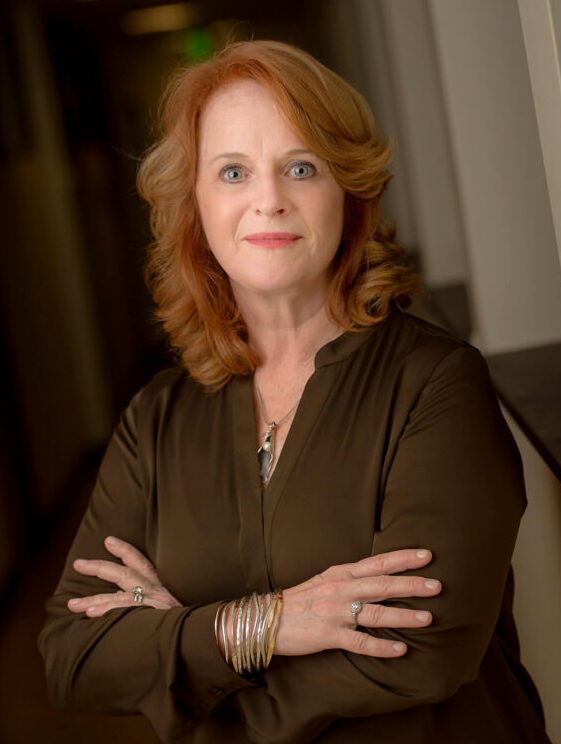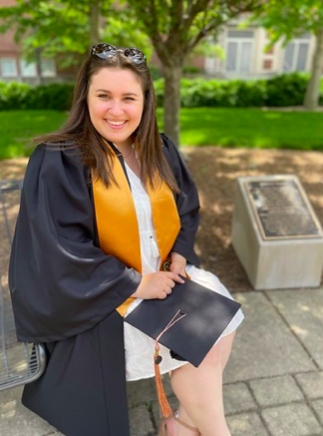Program to enhance healthcare diversity provides meaningful results for accelerated nursing students
Written By: Rebecca Hoffa, rhoffa@purdue.edu

By 2044, more than half of the United States population will be comprised of minority groups, according to projections by the U.S. Census Bureau. However, the demographics of the nursing profession continue to skew primarily white and female. This raises a need to diversify the healthcare field to improve health outcomes for minority populations and reduce health disparities.
With the goal of addressing this issue, the Purdue University School of Nursing was one of eight nursing schools in Indiana to receive funding from the Indiana Center for Nursing as part of a federal grant to diversify the nursing workforce. Divided among the eight schools, this five-year, $2.1 million grant supports six scholarships for students from diverse backgrounds pursuing a second bachelor’s degree via the accelerated nursing program at Purdue.

Pam Karagory
“The whole idea both within each individual school and then collectively among all eight schools is to really develop a sense of community for these diverse students — community within their schools and community within all of the eight schools,” said Pam Karagory, clinical professor of nursing in the College of Health and Human Sciences, who championed the grant for Purdue.
The funding approaches diversity from all levels. While it prioritizes racial diversity, the grant also considers individuals who belong to the LGBTQ+ community, veterans and individuals with disabilities. Ultimately by increasing diversity, the goal is to provide better overall healthcare to all patients.
“The literature speaks to better health outcomes, increased patient satisfaction and more culturally competent care when our health professions are more diverse,” said Mallori Walker, lecturer in the Purdue School of Nursing and grant liaison. “That’s kind of the background of why a grant like this is super important, especially because we know that in the next 20 years, our minority population is going to be the majority population.”
Students in the accelerated Second Degree Bachelor of Science in Nursing program were specifically chosen to be the recipients of the scholarships because they met the holistic admissions requirements of the grant. Unlike the centralized process for traditional nursing students, the admissions process for the second-degree program is handled entirely by the School of Nursing, from interviewing the applicants to selecting the admitted students.

Mallori Walker
Likewise, students in the accelerated program often don’t have opportunities for funding because most scholarships only support students for one bachelor’s degree.
“It’s a great opportunity for our second-degree students, who have probably maxed out on the funding they could get in undergrad, to have a little less debt,” Walker said.
Within the scholarship program, students are required to participate in monthly meetings with Walker to discuss topics of interest related to nursing. The students are also required to attend a colloquium, where they can listen to guest speakers and engage with students from the other seven schools involved in the grant.
The idea behind these activities is to offer opportunities for the students to network and learn from each other, going beyond simply the financial aid component. For accelerated nursing student Laila Haydar, the community and mentorship are two of her biggest takeaways from the program.

Laila HaydarPhoto provided
“I really value being able to share this scholarship with so many different people,” Haydar said. “I don’t think there are any two people in our scholarship group that have the same qualification to earn the scholarship. We have a veteran; we have people with learning disabilities; we have people with all kinds of things. I think just being able to have those connections has given me a better idea of how to support other minorities in nursing.”
Haydar also noted that through engaging with students beyond Purdue, she has developed a deep appreciation for the opportunities available to her in the School of Nursing.
“I learned I’m really, really lucky to be at Purdue, at a place where there’s a lot of diversity among the professors and there’s a lot of different perspectives that are shared and respected,” Haydar said. “The amount of thought that goes into making sure that our curriculum is so diverse, I think it was really eye-opening to see I had those opportunities at Purdue, and they weren’t just standard everywhere.”
As a second-degree nursing alumna herself, Walker has shared her experiences with the students and inspired them to look beyond the traditional role of the nurse to leadership opportunities in the field.

Chris Coleman
“Of course I shared with them about being a second-degree nursing student and shared what I’ve learned throughout my career,” Walker said. “A nurse does so many other things, and we have so many other opportunities outside of patient care.”
While he commended the scholarship program for allowing the School of Nursing to be intentional about increasing diversity in the nursing workforce, Chris Coleman, professor and head of the School of Nursing, is already looking beyond the grant to find ways to continue this program and others like it well beyond the five-year granting period. In doing so, he hopes to create lasting change in the nursing field.
“I don’t want us to go back to our old ways and get comfortable,” Coleman said. “I’m asking the question, ‘What’s next? What are we going to do next after this is done?’ What we have to do is make sure that good work like this is sustainable in the future. If this helps to diversify our student body, if this helps to make it more possible for students of color to engage in a profession where they are not the majority, then we need to figure out a way to keep that going.”
Discover more from News | College of Health and Human Sciences
Subscribe to get the latest posts sent to your email.